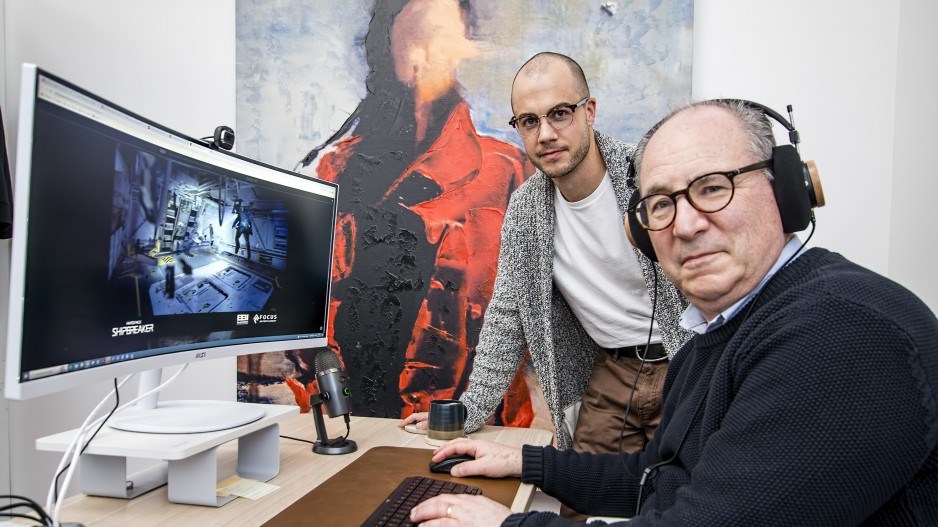Could a video game developer who uses generative AI to write code for a new first-person shooter game be infringing on the copyrights of the creative work of the video game developers whose creations are part of the knowledge base that AI uses to “learn” and then mimic the work of humans?
After all, writers like Game of Thrones author George R.R. Martin are already suing Open AI for using their work to train the large language models used in generative AI.
Whether and how to assert intellectual property rights around the use of AI in coding is just one of the more exotic legal questions that lawyers who specialize in video game law may need to wrestle with.
A more mundane bit of legal work would be employment contracts, and with more than 30,000 Canadians employed in the video game sector, that’s a lot of contracts.
Video game law is a fairly niche area of entertainment law, but it is one that is growing in Canada, along with video gaming itself.
Canada is the third-largest video game producer in the world. It’s a sector that grew in Canada by 35 per cent between 2019 and 2021 to 937 companies, according to a survey by Entertainment Software Association of Canada.
“The video game industry is actually three times the size of the TV and film industry and there’s not that many lawyers that specialize in it,” said David Jol, who, along with Jon Festinger, recently joined the entertainment law firm Chandler Fogden Lyman Law Corp. to head the firm’s new video game practice.
Jol and Festinger both specialize in video game law. Festinger is an adjunct professor at the University of British Columbia’s Peter A. Allard School of Law, where he teaches media, communications and entertainment law. He wrote a textbook on video game law in 2005.
Jol and Festinger, previously with Whiteboard Law, approached Chandler Fogden Lyman with the idea of creating a new video game law practice at the firm.
“A big part of this move was we really wanted to expand fully into the video game practice,” Jol said. “We approached them with the idea, and they were very open to it.
“I think they saw the same market trends we did, and the benefits of diversifying, especially in the midst of a dual strike in the entertainment industry. You could see the benefit of having a bit of a more diversified law practice that expands into video games.”
The entertainment sector has its own area of legal practice, as does high-tech. Gaming sits somewhere in between the two, Jol said.
“There’s a lot of aspects to a video game company that are very much like a tech company, and there are a lot of aspects that are like an entertainment company, as far as contracting with talent, developing and licensing your intellectual property and protecting your intellectual property,” Jol said.
In any video game deal, there is a property – a title – that will require licensing deals. There will be contracts with game developers, agreements with publishers and distribution agreements with platforms, like Steam or Apple.
“There are contracts with very, very heavy intellectual property language that tracks through the licensing and the rights and the cash flows,” Festinger said.
One of the things that is somewhat unique for gaming is its interactivity.
“When you look at games, we had voiceover IP in games long before Skype,” Festinger said. “We had social communities. Now you think of Instagram and Facebook and whatever, but we had social media in games in the mid-to-late 90s.
“Interactivity has a significant impact on copyright law because we have users’ rights. So the interaction between the user and the creator of the content is a major factor in fair use and fair dealing in Canada.”
One of the biggest recent disruptions in the video game industry has not been technological, but financial: The massive consolidations that have taken place through mergers and acquisitions, including the notable $68.7 billion acquisition of Activision Blizzard by Microsoft (Nasdaq:MSFT).
A number of Vancouver studios work either for Microsoft or Activision Blizzard. The fallout of the acquisition is still not clear.
“That has involved a lot of swallowing up the middle-class, basically – all the mid-sized gaming studios,” Jol said. “From a legal standpoint, a big goal I have with working with a lot of these smaller studios is to rethink some of these legal agreements that they’re entering into to make it more sustainable for these smaller studios.”
The biggest disruption yet to come is AI.
“AI is going to take all of the entertainment industries, of which video gaming is one, into new and uncharted territory and new and unchartered relationships with viewers, players, watchers and listeners,” Festinger said.
“And it’s going to be a lot more about your choice as a consumer and about what you want to do and how you want to play the game.”



